- Home
- Jodi Picoult
House Rules Page 11
House Rules Read online
Page 11
--Heeeeere's Johnny.||
The words aren't his. They're Jack Nicholson's, in The Shining. But it's his voice, his beautiful, tattered, sandpaper voice.
--Jacob?|| I cup my hands around his face.
He is not looking at me, but then again, he never looks at me. --Mom,|| Jacob says,
--my feet are really cold.||
I burst into tears and gather him tight in my arms. --Oh, baby,|| I reply, --let's do something about that.||
Jacob
This is where I go, when I go:
It's a room with no windows and no doors, and walls that are thin enough for me to see and hear everything but too thick to break through.
I'm there, but I'm not there.
I am pounding to be let out, but nobody can hear me.
This is where I go, when I go:
To a country where everyone's face looks different from mine, and the language is the act of not speaking, and noise is everywhere in the air we breathe. I am doing what the Romans do in Rome; I am trying to communicate, but no one has bothered to tell me that these people cannot hear.
This is where I go, when I go:
Somewhere completely, unutterably orange.
This is where I go, when I go:
To the place where my body becomes a piano, full of black keys only--the sharps and the flats, when everyone knows that to play a song other people want to hear, you need some white keys.
This is why I come back:
To find those white keys.
I am not exaggerating when I say that my mother has been staring at me for fifteen minutes.
--Shouldn't you be doing something else?|| I finally ask.
--Right. You're right,|| she says, flustered, but she doesn't actually leave.
--Mom,|| I groan. --There has got to be something more fascinating than watching me eat.|| There's watching paint dry, for example. Or watching the laundry cycle.
I know that I've given her a scare today, because of what happened this morning.
It's apparent in (a) her inability to leave my side for more than three seconds and (b) her willingness to cook me Ore-Ida Crinkles fries for breakfast. She even forced Theo to take the bus today, instead of being driven into school like usual, because she didn't want to leave me at home alone and had already decided that I was going to have a sick day.
Frankly, I don't understand why she's so upset, when I am the one who went missing.
Frankly, I wonder who Frank was, and why he has an adverb all to himself.
--I'm going to take a shower,|| I announce. --Are you coming, too?||
That, finally, shocks her into moving. --You're sure you feel all right?||
--Yes.||
--I'll come up and check on you in a few minutes, then.||
As soon as she is gone, I put the plate with the French fries on the nightstand. I am going to take a shower; I just have something to do first.
I have my own fuming chamber. It used to be the home of my pet fish, Arlo, before he died. The empty fish tank sits on the top of my dresser now, inverted. Underneath the fish tank is a coffee cup warmer. I used to use a Sterno, but my mother wasn't very enthusiastic about fire (even one burning at low level) in my room, hence the electric warmer. On top of this I make a little boat out of aluminum foil, and then I squeeze in a small nickel-size dollop of Krazy Glue. I take the mug of cocoa (nondairy, of course) my mother brought me and stick it in the chamber, too--it will provide humidity in the air, even though I won't want to drink it after the fuming, when white scum is floating around on its surface. Finally, I place inside the drinking glass that has a known sample on it--my test fingerprint--to make sure everything is working.
There's only one thing left to do, but it makes my stomach clench.
I have to force myself to sort through the clothes I was wearing yesterday to find the item I want to fume, the one I took home from her house. And that of course makes me think of everything else, which means the corners of my mind go black.
I have to actively work to not be sucked into that hole again.
Even through the latex glove I've slipped on I can feel how cold the metal is. How cold everything was, last night.
In the shower, I scrub really hard, until my skin is too pink and my eyes are raw from staring into the stream of water. I remember everything.
Even when I don't want to.
Once, when I was in third grade, a boy made fun of the way I talked. I didn't understand why his impression of me, with words falling flat as pancakes, would be funny to anyone. I didn't understand why he kept saying things like Take me to your leader. All I knew was that he followed me around on the playground, and everywhere he went, people would laugh at me. What is your problem? I finally asked, turning around to find him right on my heels.
What is your problem? he parroted.
I'd really prefer it if you could find something else to do, I said.
I'd really prefer it if you could find something else to do.
And before I knew what I was really planning, my fingers closed into a fist and punched him square in the face.
There was blood everywhere. I didn't like having his blood on my hand. I didn't like having it on my shirt, which was supposed to be yellow.
The boy, meanwhile, was knocked unconscious, and I was dragged to the principal's office and suspended for a week.
I don't like to talk about that day, because it makes me feel like I am full of broken glass.
I never thought I'd see that much blood again on my hands, but I was wrong.
It only takes ten minutes for the cyanoacrylate--the Krazy Glue--to properly work. The monomers in its vapors polymerize in the presence of water, amines, amides, hydroxyl, and carboxylic acid--all of which happen to be found in the oils left by fingerprints. They stick to those oils, creating a latent image, which can be made more visible by dusting with powder. Then, the image can be photographed and resized and compared to the known sample.
There's a knock on my door. --You okay in there?||
--No, I'm hanging from a closet rod,|| I say.
This is not the truth.
--That's not funny, Jacob,|| my mother replies.
--Fine, I'm getting dressed.||
This is not the truth, either. I am actually wearing my underwear and a T-shirt right now.
--Okay,|| she says. --Well, give a holler when you're done.||
I wait until her footsteps fade down the hall, and then I remove the glass from beneath the fish tank. Sure enough, there are several prints. I dust them with a dual-use powder, which has contrast on both white and black surfaces. Then I dust the prints on the second item, too.
I photograph them at close range with the digital camera I got for Christmas two years ago and load the images into my computer. It's always a good idea to photograph your latent prints prior to lifting them, just in case you destroy them during the process.
Later, in Adobe Photoshop, I can invert the colors of the ridges and resize the prints. I can begin an analysis.
I carefully tape over the print to preserve it, intending to hide what I took away from her house in a place where no one will ever find it.
My mother, by then, is tired of waiting. She opens the door. --Jacob, put on a pair of pants!||
She holds her hand over her eyes but enters my bedroom all the same.
--No one told you to come in,|| I say.
She sniffs. --You've been using Krazy Glue again, haven't you? I told you I don't want you fuming while you're in the room--that can't be good for you.|| She pauses. --Then again, if you're fuming, you must be feeling better.||
I don't say anything.
--Is that your cocoa in there?||
--Yes,|| I say.
She shakes her head. --Come on downstairs,|| my mother sighs. --I'll make you a fresh cup.||
Here are some facts about forensics:
1. Forensics is defined as the scientific methods and techniques used in connection with the detection of cr
ime.
2. The word forensic comes from the Latin forensis, which means --before the forum.|| In Roman times, a criminal charge was presented in front of a public group in the forum. The accused and the victim would give testimony, and the one who had the best argument would win.
3. The first written account of forensics to solve cases was during the Song Dynasty in China in 1248. After a person was killed with a sickle, an investigator told everyone to bring their sickles to a specified location, and when the flies were drawn to one by the smell of blood, the murderer confessed.
4. The earliest incidence of fingerprint use to determine identity was in the seventh century, when a debtor's fingerprints were attached to a bill, as proof of the debt for the lender.
5. Forensic science is a lot easier to perform when you aren't personally involved.
The tips of your fingers, the palms of your hands, and the soles of your feet aren't smooth.
They are friction-ridged skin, series of lines with contours and shapes, like a topographical map. Along those lines are sweat pores, and if they become contaminated with sweat, ink, blood, or dirt, they'll leave a reproduction of those lines on the object that's been touched.
Or, in less fancy terms, a fingerprint.
If the print can be seen, it can be photographed. If it can be photographed, it can be preserved and compared to a known sample. It's an art as much as it's a science: since I don't have an AFIS terminal in my house to scan the latent print and spit out fifty candidates with matching similarities, I have to rely on the naked eye. The goal is to find ten to twelve similarities between the known sample and the latent print--that's what most examiners would conclude to be a match.
On my computer screen, I set images of the two prints. I place my cursor on the core, the centermost part of the print. I mark a delta--a small triangular formation to the left of the core. I note ending ridges and bifurcations and a circular whorl. A bifurcation, then two ridges, then another bifurcation downward.
Just like I assumed: This is a match.
That makes me feel like I am going to throw up, but I swallow and force myself to do what needs to be done.
Like yesterday.
Shaking my head clear, I take a small Tupperware container that I've filched from the kitchen and place the evidence inside. Then I rummage around in my closet until I find Jemima Puddle-Duck. She's a stuffed animal that I used to sleep with when I was a kid, and because she is white, she is up on a shelf above the rest of my clothes that have actual pigmentation. I place her facedown in my lap and, using a box cutter, make an incision in the place where she might have had a heart.
The Tupperware has to be jammed inside, and it makes Jemima look like she has an unsightly rib cage, but it works. I suture her with the same thread I used last week to fix a hole in my sock. I'm not very good at it--I stick myself nearly every stitch--but I get the job done.
Then I take out a notebook and start writing.
When I am done, I lie down on my bed. I wish I were at school. It's harder, when I'm not working at something.
--I shot the sheriff,|| I whisper. -- But I swear it was in self-defense.||
I've often thought about how a person could commit the perfect crime.
Everyone always talks about the proverbial icicle--stab someone and the murder weapon will melt--but it's a long shot (a) that you will be able to grip that icicle long enough to inflict a wound and (b) that it won't break off when it hits the skin before puncturing it.
Mescaline sprinkled over someone's salad would be subtler--the brown powder would be virtually indistinguishable mixed with vinaigrette, and you wouldn't taste the bitter flavor, especially if there was chicory or arugula in the mix. But what if you only made your victim have a bad trip instead of die, and plus, where would you get your stash? You could take someone sailing and shove him overboard, preferably after getting him drunk, and say he fell accidentally--but then, you would need to have a boat. A mix of Vicodin and alcohol would slow the heart excessively, but your victim would have to pretty much be a party animal for a detective to not find that suspicious. I've heard of people who try to burn down a house after committing murder, but that never really works. The arson inspectors can trace where the fire started. Plus, a body has to be charred beyond recognition--and dental work--to not point a finger back at you. I wouldn't recommend anything that leaves blood, either. It's messy; you'll need lots of bleach to clean it, and there's bound to still be a drop left behind.
The conundrum of the perfect crime is complicated, because getting away with murder has very little to do with the mechanism of the killing and everything to do with what you do before and after. The only way to really cover a crime is to not tell a soul. Not your wife, not your mother, not your priest. And, of course, you have to have killed the right kind of person--someone who isn't going to be looked for. Someone who nobody wants to see again.
Theo
Once, a girl came up to me in the cafeteria and asked me if I wanted to go to Jesus Camp. You will be saved, she told me, and man, I was tempted. I mean, it's been pretty clear to me for a while that I'm going to hell, because of all the secret thoughts I'm not supposed to have about Jacob.
You always read these books about kids who have autistic siblings and who are constantly looking out for them, who love them to death, who do a better job defusing their tantrums than the adults. Well, I'm not one of those people. Sure, when Jacob used to wander off I'd feel sick in the pit of my stomach, but it wasn't because I was worried about him. It was because I had to be an awful brother to be thinking what I was: Maybe he'll never be found, and I can get on with my life.
I used to have dreams that my brother was normal. You know, that we could fight about ordinary things, like whose turn it was to control the television remote, or who got to ride shotgun in the car. But I was never allowed to fight with Jacob. Not when I'd forget to lock my bedroom door and he came in and stole my CDs for some forensics project; not when we were little and he'd walk around the table at my birthday party, eating cake off the plates of my friends. My mother said it was a house rule, and she explained it like this: Jacob's different from the rest of us. Gee, you think? And by the way, since when does being different net you a free pass in life?
The problem is, Jacob's difference doesn't confine itself to Jacob. It's like the time my mother's red shirt bled in the wash and turned all my clothes pink: my brother's Asperger's has made me different, too. I could never have friends over, because what if Jacob had a meltdown? If I thought it was weird to see my brother peeing on the heater to watch steam rise, what the hell would someone from school think? That I was a freak, no doubt, by association.
True confession number one: When I'm walking down the hall in school and I see Jacob at the other end of the corridor, I intentionally divert my path to avoid him.
True confession number two: Once, when a bunch of kids from another school started making fun of Jacob as he attempted to play kickball--a hot mess if ever there was one--I pretended that I didn't know him; I laughed along, too.
True confession number three: I truly believe that I have it worse than Jacob, because he's oblivious most of the time to the fact that people want nothing to do with him; but I am one hundred percent aware that they're all looking at me and thinking, Oh, that's the bizarre kid's brother.
True confession number four: I don't sit around thinking about having kids, normally, but when I do it scares the shit out of me. What if my own son winds up being like Jacob? I've already spent my whole childhood dealing with autism; I don't know if I can handle doing it for the rest of my life.
Any time I think of one of these things, I feel like crap. I'm pretty much useless: not Jacob's parent, and not one of his teachers. I'm just here as the benchmark alternative, so that my mother can look from Jacob to me and measure the distance between an AS kid and a so-called normal one.
When that girl asked me to go to Jesus Camp, I asked her if Jesus was going to be there. She loo
ked confused, and then said no. Well, I said, isn't that a little like going to hockey camp and not playing hockey? As I walked away, the girl told me Jesus loved me.
How do you know? I asked.
Once, after Jacob had raged through my room like a tropical storm and destroyed most of what was important to me, my mother came in to commiserate. Deep down, he loves you, she told me.
How do you know? I asked.
I don't, she admitted. But it's what I have to believe to keep going.
I've looked in my jacket, my pants. I've scoured the driveway. But I can't find the iPod, and that means it's lost somewhere between here and her house.
What if she knows I tried to take it?
What if she tells someone?
*
By the time I get home from school, life is back to normal. My mother is typing away on her laptop at the kitchen table, and Jacob is in his room with the door closed. I make myself ramen noodles and eat them in my room with Coldplay blasting as I do my French homework.
My mother's always telling me I can't listen to music when I do my homework. Once, she barged in and accused me of not working on my English paper when it was what I'd been doing all along. How good could it possibly be, she said, if you're not concentrating?
I told her to sit down and read the stupid paper on my computer.
She did, and shut up pretty quickly. I got an A on that project, as I recall.
I guess that somehow the gene pool in our family got all mixed up, and as a result, Jacob can only focus on one thing, an extreme obsession, while I can do sixteen thousand things at a time.
When I finish my homework I'm still hungry, so I go downstairs. My mother is nowhere to be found--and there's no freaking food in the house, for a change (not)--but I notice Jacob sitting in the living room. I look up at the clock, but I hardly have to--if it's 4:30 in our house, it must be CrimeBusters.
I hesitate at the doorway, watching him pore over his notebooks. Half of me is ready to slink away without being seen by Jacob, but the other half remembers what he looked like this morning. In spite of all I've said about wishing he was never born, seeing him like that--like the light had gone out inside him, sort of--made me feel like I'd been punched over and over in the gut.

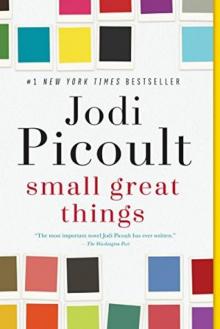 Small Great Things
Small Great Things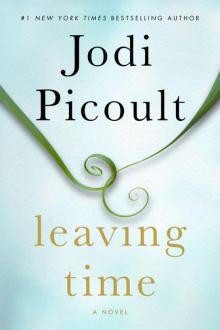 Leaving Time
Leaving Time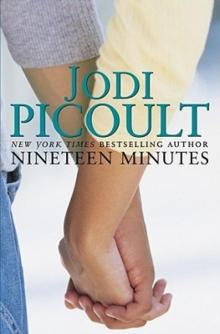 Nineteen Minutes
Nineteen Minutes Larger Than Life
Larger Than Life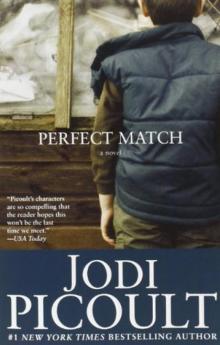 Perfect Match
Perfect Match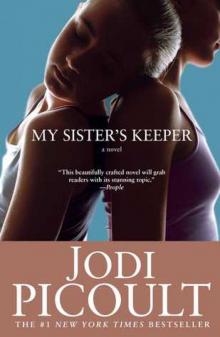 My Sister's Keeper
My Sister's Keeper The Pact
The Pact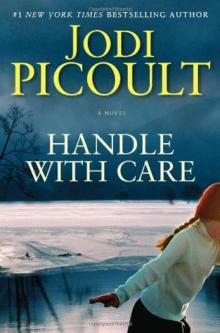 Handle With Care
Handle With Care Songs of the Humpback Whale
Songs of the Humpback Whale Mermaid
Mermaid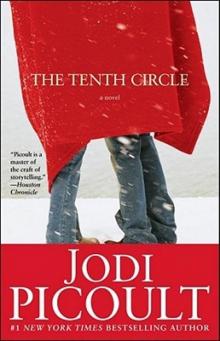 The Tenth Circle
The Tenth Circle The Color War
The Color War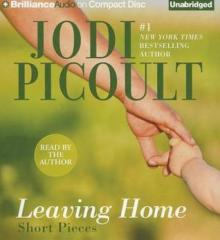 Leaving Home: Short Pieces
Leaving Home: Short Pieces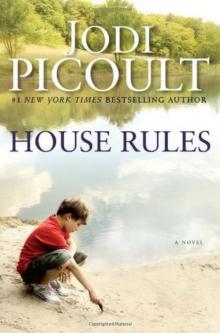 House Rules
House Rules Lone Wolf
Lone Wolf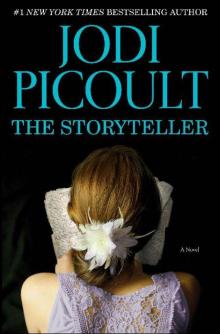 The Storyteller
The Storyteller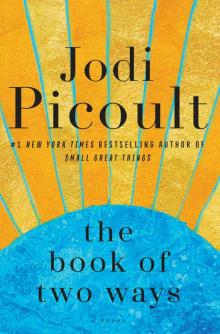 The Book of Two Ways
The Book of Two Ways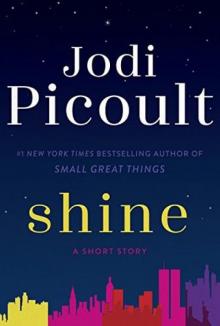 Shine
Shine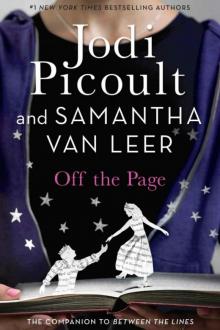 Off the Page
Off the Page Sing You Home
Sing You Home Second Glance: A Novel
Second Glance: A Novel Mercy
Mercy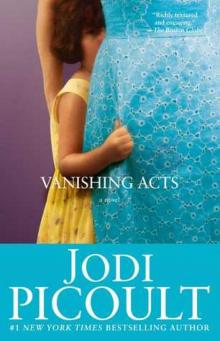 Vanishing Acts
Vanishing Acts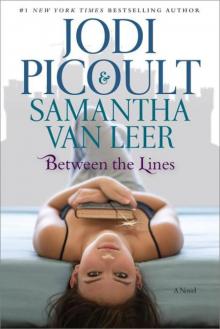 Between the Lines
Between the Lines Plain Truth
Plain Truth Salem Falls
Salem Falls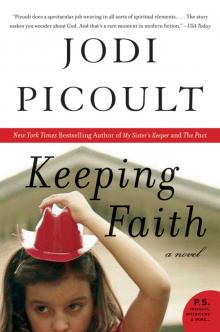 Keeping Faith
Keeping Faith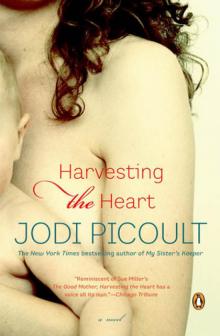 Harvesting the Heart
Harvesting the Heart Change of Heart
Change of Heart Where There's Smoke
Where There's Smoke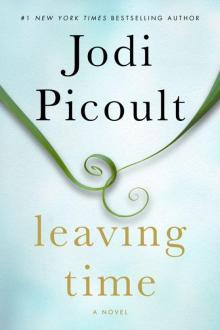 Leaving Time: A Novel
Leaving Time: A Novel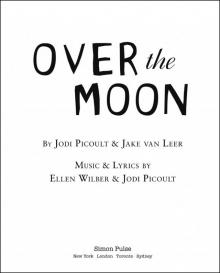 Over the Moon
Over the Moon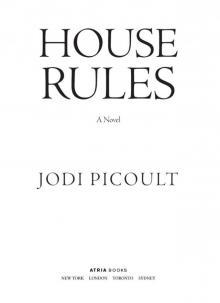 House Rules: A Novel
House Rules: A Novel The Jodi Picoult Collection #2
The Jodi Picoult Collection #2 Leaving Home: Short Pieces (Kindle Single)
Leaving Home: Short Pieces (Kindle Single)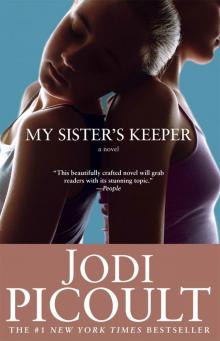 My Sister's Keeper: A Novel
My Sister's Keeper: A Novel![Mermaid [Kindle in Motion] (Kindle Single) Read online](http://i1.bookreadfree.com/i1/04/03/mermaid_kindle_in_motion_kindle_single_preview.jpg) Mermaid [Kindle in Motion] (Kindle Single)
Mermaid [Kindle in Motion] (Kindle Single) The Jodi Picoult Collection #4
The Jodi Picoult Collection #4 Sing You Home: A Novel
Sing You Home: A Novel The Jodi Picoult Collection
The Jodi Picoult Collection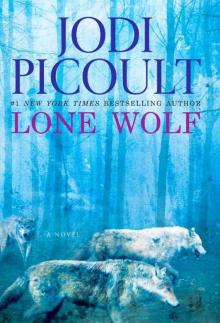 Lone Wolf A Novel
Lone Wolf A Novel Second Glance
Second Glance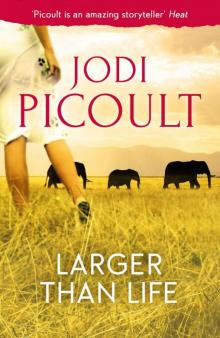 Larger Than Life (Novella)
Larger Than Life (Novella) The Jodi Picoult Collection #3
The Jodi Picoult Collection #3